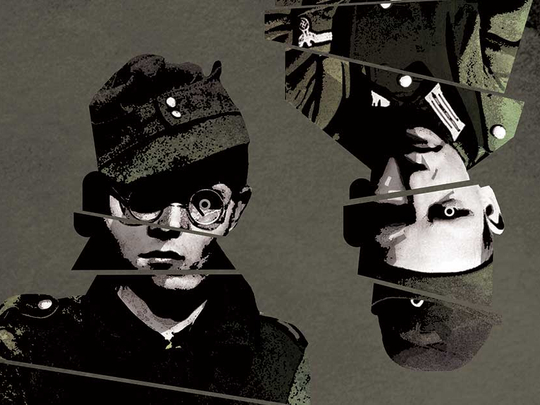
March 1945, and Walter and Friedrich, young apprentices on a north German dairy farm, are drafted into the Waffen SS, serving out the final weeks of wartime in Hungary, in the teeth of the Russian advance and the brutality of the German collapse.
The boys are plunged from childhood into the abyss, and this remarkable novel charts a most terrible coming of age.
To Die in Spring is the first of Ralf Rothmann’s eight novels to be translated into English, by Shaun Whiteside; published in Germany in 2015, it has won him much acclaim across Europe, with a few reviews even suggesting he has inherited the mantle of Gunter Grass.
This is high praise indeed, but then Rothmann has chosen the very subject that Grass failed to address in his fiction. He too was a teenage conscript, drafted late in the war, but kept this quiet, only revealing it in his late memoir, much to the consternation of his critics and admirers.
“Silence, deep concealment, particularly about the dead, is ultimately a vacuum that fills with truth.” So begins Rothmann’s opening chapter.
We learn that Walter, his principal character, never spoke of his experiences to his son, whose postwar memories of his father’s unknowability bookend the novel. Such elisions, Rothmann suggests, have become part and parcel of German lives. But here is where the comparison with Grass ends. This story has none of the Nobel laureate’s sweeping provocations, his wry and sly metaphors. Rothmann’s is an altogether more intimate prose style, often hauntingly beautiful in its precision. We experience the carnage and cruelty of the front primarily through the teenage Walter, the boy’s wide-eyed, often disconnected view of events serving to convey the hallucinatory power of the desecration he witnesses.
He enters a world of phosphorus fires and magnesium flares, of amputees and grey-faced wounded; the novel has more in common with Erich Maria Remarque for the lyrical intensity with which its young lives and those final weeks of war are described. All Quiet on the Western Front followed the fortunes of grammar school classmates; Rothmann’s protagonists are working boys from Hamburg and the Ruhr, who have thus far avoided military service because of their age and unsuitability. “Even in the Hitler Youth,” Walter reveals, “I couldn’t hit a thing. Bit of a squint.”
Their girlfriends are barmaids, farmer’s daughters who share lipsticks and darken their hair with blackened cork ends.
From the start, Friedrich is tempted to desert, while Walter hopes his duties with the supply corps will keep him from the worst. “This is a war for cynics, who don’t believe in anything but might makes right ... Kick downwards, bow and scrape upwards, and massacre women and children.”
Friedrich’s assessment is astute; from the start, he is tempted to desert, while Walter hopes his duties with the supply corps will keep him from the worst. His father, a camp guard in Dachau, passed on spoiled cigarettes to inmates in an uncharacteristic moment of altruism; for this he was transferred to certain death on the eastern front - not far, it turns out, from where his son is stationed.
When news arrives of his father’s demise, Walter is granted three days’ leave to find his grave. This journey east - ever further into danger - takes Walter away from Friedrich, and gives rise to some of the novel’s most striking passages. “There are more graves here than living people,” he is warned, and it’s true he finds little but death, much of it inflicted by the Germans on themselves. From every tree, it seems, hang the corpses of deserters, white wooden boards around their necks proclaiming “I am a COWARD ... the neat, level letters, painted on the sign along pencil lines.”
Walter’s memories of home life are the novel’s only weak points. His mother is a serial adulterer, and her boyfriends are grotesques, the latest an obese undertaker who steals the rings from the bodies he inters. Walter’s father was not only a concentration camp guard, but also a sadist towards his son and a sexual predator towards his young daughter. Doubtless such families existed; of course such depths are there to be plumbed in fiction - and what better novel to do this than one that examines the human capacity for inhumanity? However, in a narrative so finely executed, which at its best can provide evidence of brutalisation in a pencil line, there is an excess when it comes to Walter’s family that verges on the sensationalist.
But the central friendship is tenderly rendered, and what the war does to it is devastating, when the boys are unexpectedly reunited. In this, as insomuch, the novel holds its own against Grass and Remarque; it is an excellent work, and one deserving of its wide readership.
To Die in Spring is published by Picador.
Guardian News & Media Ltd, 2017









